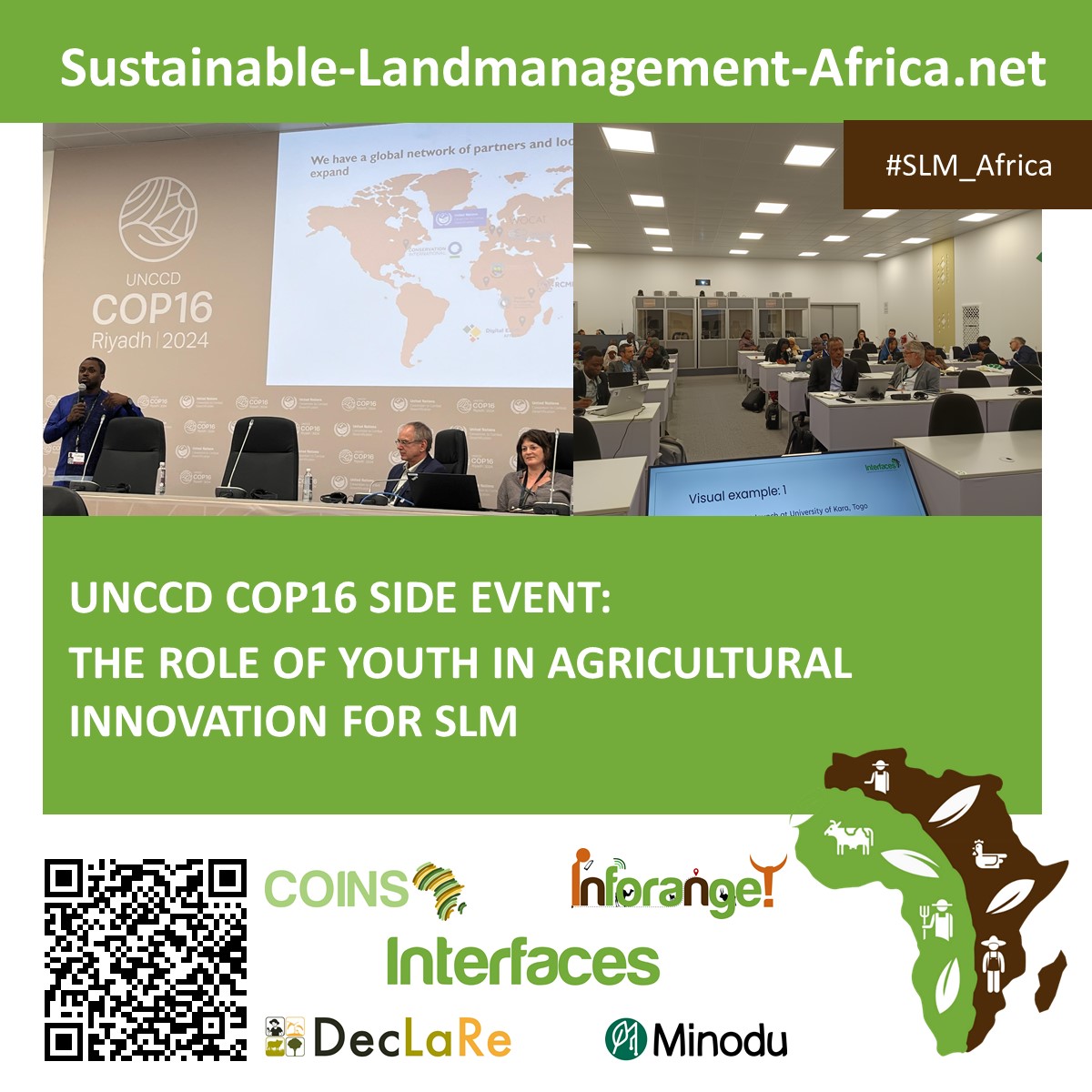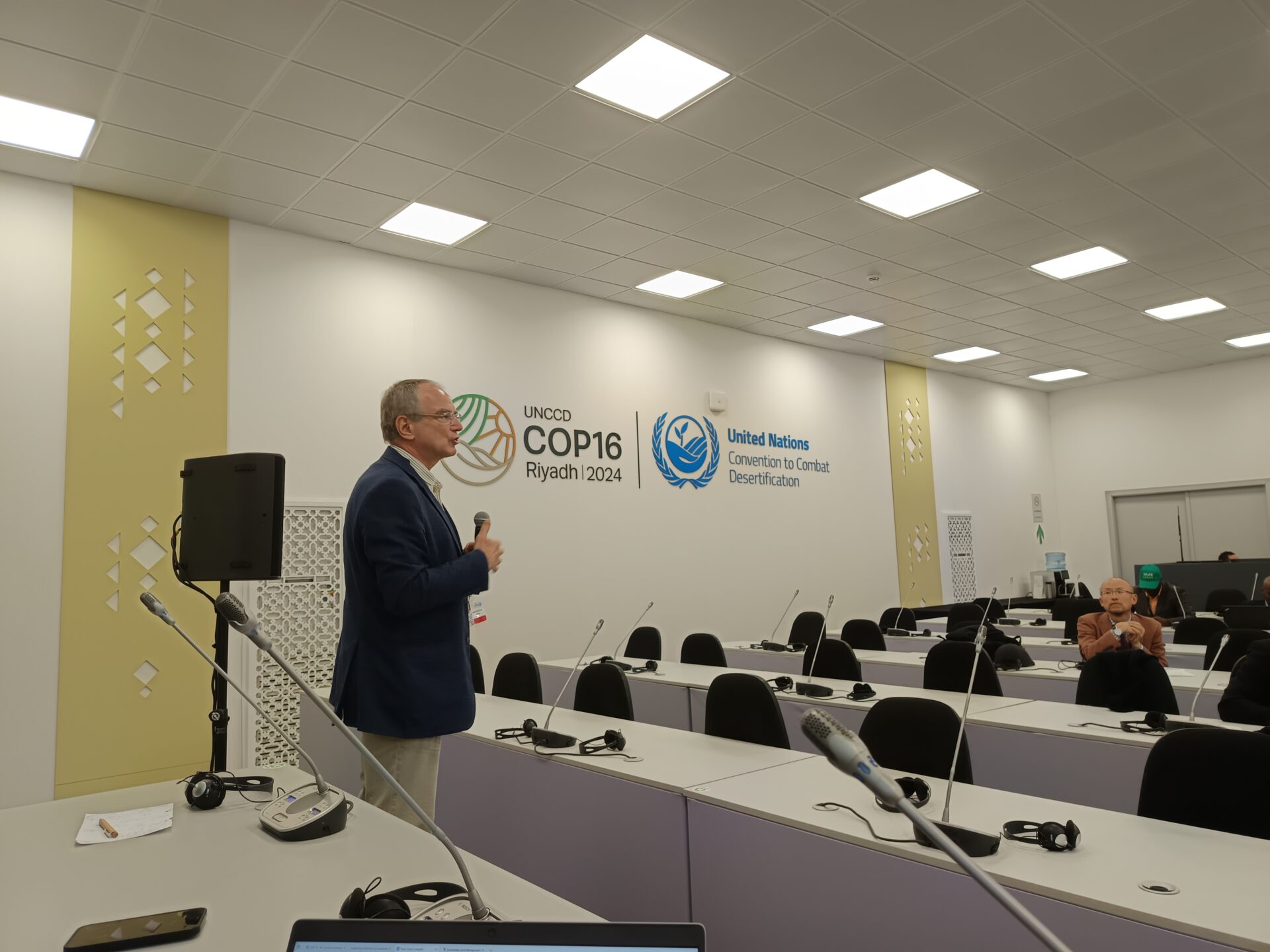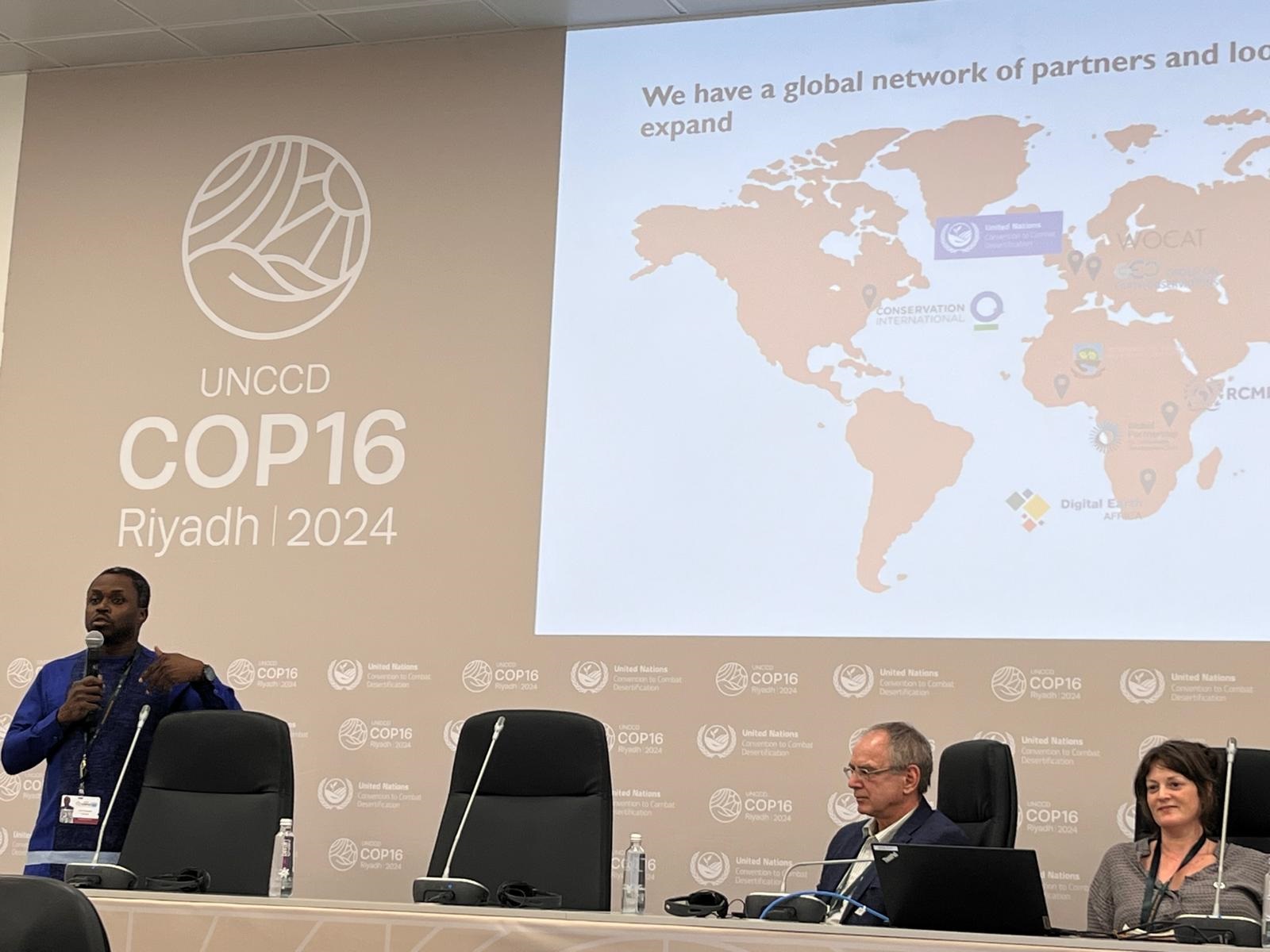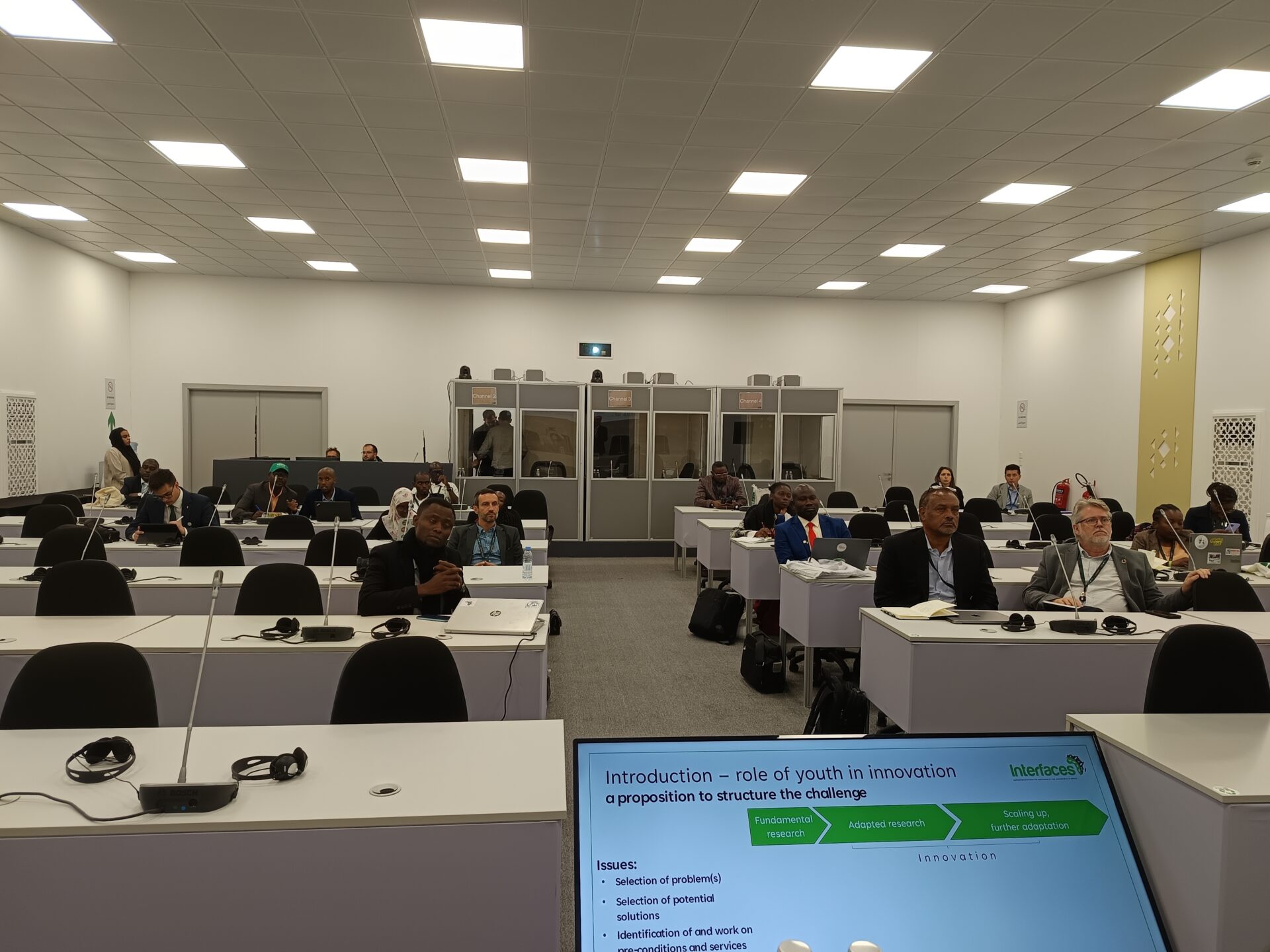The role of youth in sustainable land management
On December 9, 2024, in Riyadh, Saudi Arabia, a unique side event was held during the 16th Conference of the Parties to the United Nations Convention to Combat Desertification (UNCCD COP16). Titled “Sustainable Land Management: The Role of Youth in Innovation,” the event underscored the critical importance of youth in driving agricultural transformation and innovation.
The importance of innovations in agricultural practices
Agricultural land use practices largely determine the ecological status of land—both on agricultural land itself and on interlinked landscapes—which are shaped by (the absence of) innovations. A combination of low innovation adoption, stagnant agricultural productivity and an increase in land degradation are particularly accentuated in Sub-Saharan Africa (SSA). It is widely observed that, agricultural societies are often still traditional in nature, relying on hierarchical structures. It is, however, uncontested that changes (innovations) have to occur if SSA is to achieve sustainable land management (SLM).
To ensure this, a conscious effort towards curriculum review and long-term implementation is needed for the next generation of farmers and leaders alike to practice land stewardship. This is central to overall economic development and critical for the support of the three Rio Conventions. Youth are increasingly more ambitious and open to innovative approaches in SLM; however, often have limited decision-making power within traditional village structures. It can be assumed that without better integrating youth into the development of innovations that support sustainable land use, the next generation will not have the necessary options to combat land degradation.
Therefore, this jointly organised side event brought together actors from across our networks of civil society organisations, governmental and intergovernmental partners to discuss how youth can be better included in agricultural innovation development and transformation in SSA.
An interactive discussion with thought leaders
The event adopted a dynamic Fishbowl format, encouraging active participation and open dialogue. Attendees had the opportunity to exchange ideas on how to better involve young people in agricultural innovations for SLM. Dr. Michael Brüntrup, Senior Researcher at IDOS and German representative to the UNCCD Committee on Science and Technology, who set the framework for the event, moderated the session. Dr. Amos Kabo-bah, associate Professor and currently the Dean for the International Relations Office of the UENR, provided input on the importance of long-term capacity building and continuous learning processes.
The discussion was enriched by insights from key note speakers from both the scientific community and from the youth community. Samuel Gameda, Senior Soil Scientist at CIMMYT, provided examples of scientific solutions to improve sustainable agricultural productivity and Kingnidé Wilfrid Adjimoti, certified Knowledge Manager and YPARD representative advocated for youth engagement in sustainable agriculture. Also, Dr Sidy Tounkara from IPAR Think Tank in Senegal, provided an intervention from the context of the regional project COINS, on the challenges faced by youth in SLM and how the living lab approach and farmer field schools can mobilise and leverage uptake of SLM technologies if youth are properly included from the start of the process.



